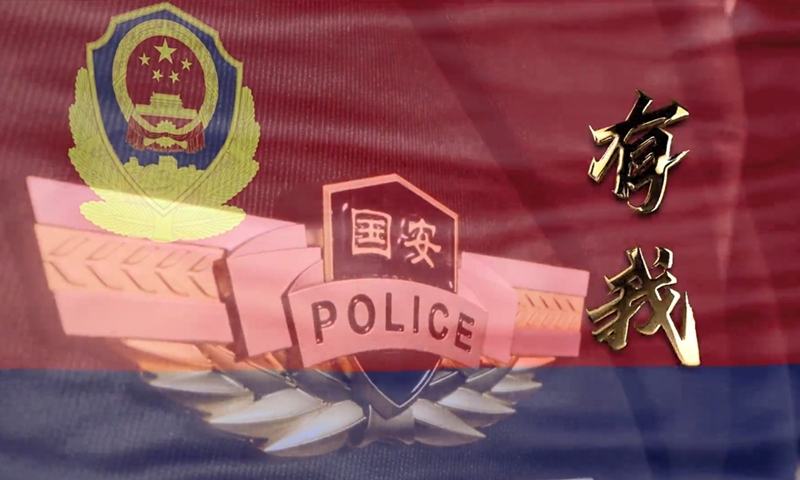Chinese engineers help electrify Timor-Leste, transforming lives and deepening bilateral ties

As dusk falls over Timor-Leste's capital Dili, Yang Huchen's car winds through the country's rugged terrain, his eyes tracing the golden constellations of light that now dot the hillsides. Each glowing window tells a story - a child studying after sunset, a vendor keeping a stall open late, and a family gathered beneath a steady bulb.
For Yang, a Chinese engineer who has spent 13 years constructing national power grid across this island nation, the view stirs something deeper than scenery. "It's not just electricity," he told the Global Times. "It's about ordinary people's lives."
When Yang first arrived in 2011 as part of the pioneering team at the China Nuclear Industry 22nd Construction Co, Ltd (CNI22), darkness defined evening life here. Families had to rely on candles if they needed to work at night. But today, over 90 percent of Timorese households hum with reliable power - a milestone forged by Yang and his colleagues at the CNI22, who turned a national grid project into a lifeline for a nation.
"Before, the night felt endless. It used to be difficult for me to study due to lack of electricity at night and we had to work through tasks during daytime," recalled 26-year-old Anna Isabel De Jesus, who lives in a small village near Dili.
According to Anna, her two sons were born after the national grid system was completed, therefore, they can either study or enjoy leisure time with the family at night, a privilege that their mother was unable to enjoy when she was little.
The national power grid of Timor-Leste, constructed and operated by the CNI22, is the largest power infrastructure project in the country to date. The project includes one national dispatch center, nine substations, 1,407 transmission towers, 603 kilometers of high-voltage transmission lines, and 120 kilometers of medium-voltage distribution lines. Since the commissioning of the first substation in November 2011, the national power grid of Timor-Leste has transmitted a total of 5.82 billion kilowatt-hours of electricity, introduced Dai Linfeng, who is in charge of the CNI22 Timor-Leste branch.
The project has fundamentally changed the history of electricity shortages in Timor-Leste, improved the living standards of its people, and provided strong momentum for the country's economic and social development. Furthermore, it has had a profound and positive impact on enhancing the friendship between the two countries, Dai said.
A tough, rewarding journey
Yang, a seasoned engineer at the CNI22, arrives in August 2011 and has experienced firsthand the challenges and transformative progress in Timor-Leste's power sector over the past decade.
Recalling his early working experience, Yang said, "Every outing became an adventure, particularly during the rainy season." When heavy rains turned routine inspections into grueling treks, Yang and his colleagues would find themselves navigating through wild terrain where flash floods and even snakes were a constant threat.
"Sometimes, we had to decide whether to wait for the water to subside or risk trekking through dangerous, isolated paths," Yang said.
Due to the remote location of various substations and transmission towers, field teams were often required to traverse long distances on foot. In areas where vehicles could not reach, the inspectors faced the dual challenges of lengthy hikes and the imminent dangers of heavy rainfall and sudden floods.
"We needed to travel with self-heating meals and dry provisions to sustain us when embarking on a journey to remote areas during rainy seasons," he recalled to the Global Times. No matter how hard the journey would get, the CNI22 team in Timor-Leste would always demonstrate their resolve to ensure the operation of the electrical networks.
In addition to bringing Chinese expertise and high standards, the company highly prioritized training local experts. Since the start of the electricity program, the CNI22 provided lectures to train local personnel to operate and maintain the power infrastructure.
The company collaborated with the government to select and train promising candidates and the selected personnel would receive intensive training programs teaching both theoretical principles and hands-on technical skills. The training was comprehensive, encompassing detailed classroom sessions, live demonstrations, and on-site mentorship.
"It was vital that we build a self-sufficient team here. Our goal was to not only transfer technical know-how, but also instill a disciplined work ethic that would transform the operational culture," Dai told the Global Times.
Bridge of hearts
Hilario, a local employee who has the Chinese name Lan Tian, which literally means Blue Sky, told the Global Times that it is great to get the opportunity to work and be a part of the CNI22 in Timor-Leste.
Hilario was one of the first Timorese workers at the company and working there, he said, offered a stable income and a sense of pride from being involved in a project of significance that improves people's lives.
"Before we only had electricity from 7 am to 11 pm and the lack of electricity also led to a lack of water. Now with reliable electricity, our country will definitely develop better," he said. Hilario's wife delivered their fourth child this year, and as for their families, they share Hilario's deep fondness for China.
For many locals, especially college graduates, landing a job at the CNI22 means a good career path ahead. Several Timorese employees interviewed by the Global Times pointed out that the competition to secure a job is quite intense, and this is in direct proportion to the satisfactory results they received from the job.
In the CNI22 Timor-Leste branch, more than half of its employees are Timorese nationals.
"In our long journey, the transformation was as much about technology as it was about trust and cultural exchange," Dai emphasized, highlighting the mutual respect and teamwork that have become the cornerstones of the operation.
This mutual trust and care have extended from the workplace to their daily lives. For the family members and even neighbors of the local employees, the CNI22 is their first experience with a Chinese company and China.
Anna is the neighbor of a Timorese employee at the CNI22. She told the Global Times that the company brought them the prospect of a new life, a life that she has not dreamed of before, but her two sons can now enjoy.
As the Chinese proverb goes, "Give a man a fish, you feed him for a day; teach a man to fish, you feed him for a lifetime," Dai and his team members worked to lay the groundwork for a future in which the local workforce can independently manage their electrical infrastructure by consistently applying stringent technical standards and prioritizing safety.
"It's not just about keeping the lights on - it's about lighting the way for future progress," Dai told the Global Times.
The Global Times learned that Timor-Leste Branch of CNI22 has an evaluation system assessing Timorese employees' technical competency, management aptitude, and cross-cultural communication skills, linking performance to career progression. Those with good evaluation results will get promoted.
After years of development, the CNI22 has not only helped address once chronic electricity shortages, but their projects have also been diversified to include agriculture, road construction, and sanitation equipment.
'Ink and water'
China was the first country to establish diplomatic relations with Timor-Leste in 2002. In September 2023, both sides announced the elevation of their bilateral relations to a comprehensive strategic partnership. In recent years, both countries have demonstrated deepened political mutual trust and achieved fruitful results in practical cooperation in a range of fields under the framework of high-quality Belt and Road cooperation, the Xinhua News Agency reported.
In Dai's eyes, their work in Timor-Leste is similar to "blending ink and water," and now "there is part of me in you and part of you in me." For Timor-Leste, where the CNI22 helped build critical infrastructure after the nation gained independence in 2002, the partnership carries deeper symbolism.
Meanwhile, in the UAE, the company's housing projects cater to the growing demand for eco-conscious urban living, a niche that aligns with the country's sustainable development goals.
From constructing high-end housing complexes to undertaking energy infrastructure projects in the sunbaked landscapes of the UAE, the CNI22's operations also epitomize Chinese companies' evolving approach to overseas infrastructure development; one that prioritizes localized adaptation over a one-size-fits-all model. As of March 2024, the company employed over 3,200 foreign staff across the Middle East, which constituting about 95 percent of its UAE workforce, according to the CNI22.
The energy sectors demand precision, and the CNI22's fusion of Chinese technical standards with localized expertise has become a blueprint. At every construction site, Chinese and foreign employees together uphold high standards. Every safety training session and cross-cultural workshop is a two-way exchange.
The philosophy of precision and integration also resonates with employees like Ahmad Ali Ahmad Aldrobi, an engineer from Jordan who even developed a love for Chinese culture. He learned some basic Chinese and can write Chinese characters neatly and stylishly.
As dusk settles over Dubai's skyline, the CNI22's office hums with a mix of Chinese, Arabic, and English. Here, the "ink and water" metaphor takes tangible form: A Jordanian engineer masters Chinese project management software, while Chinese engineers study English and Arabic to better liaise with their colleagues.
For Aldrobi, the bond transcends his profession, and is more about knowing about more family members. In his eyes, the future they are building is not just buildings and power station, but connections that outlive steel and concrete.
"I love China and Chinese culture. And I will let my children know about this love and take them to see China," he told the Global Times.




